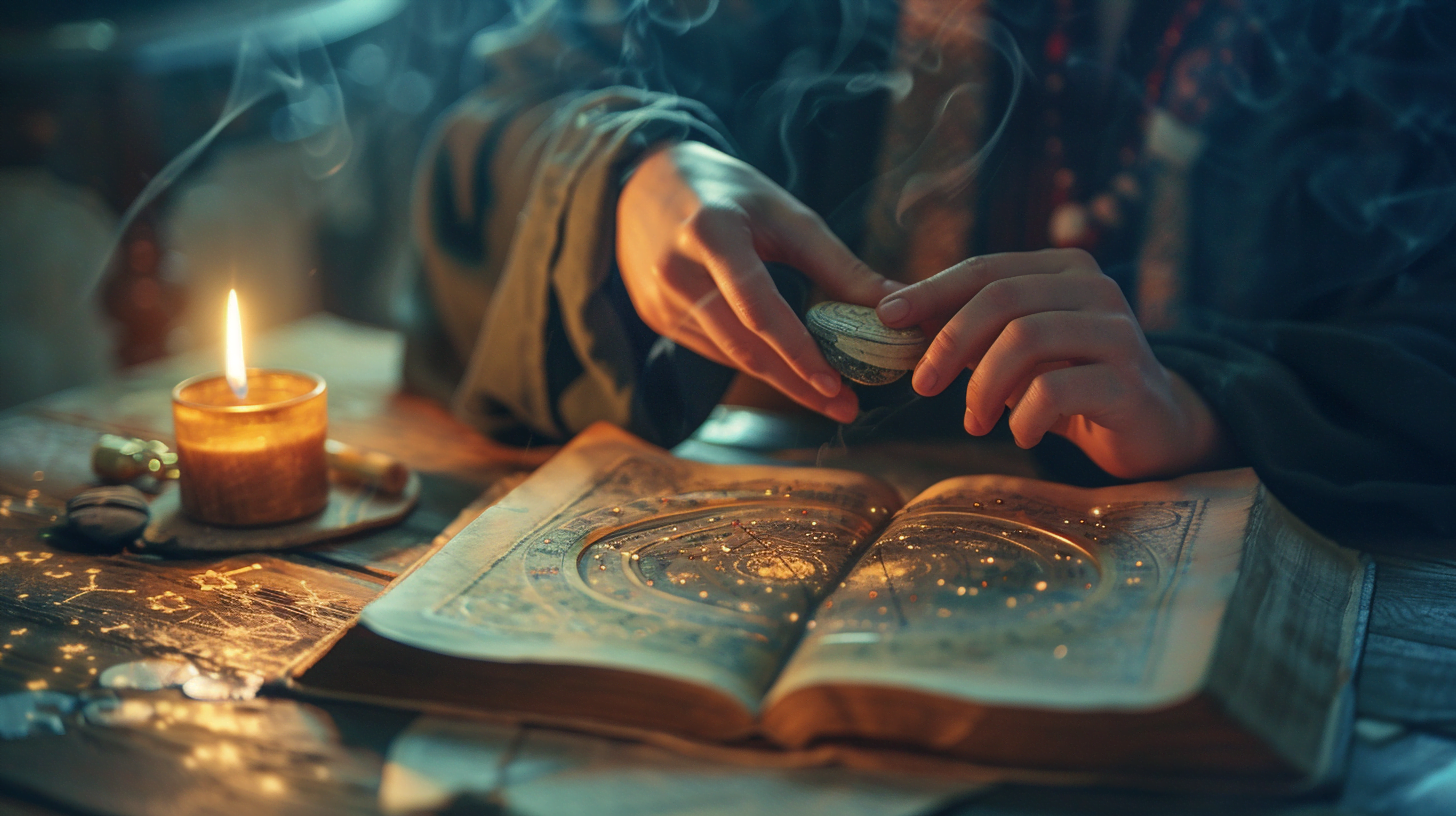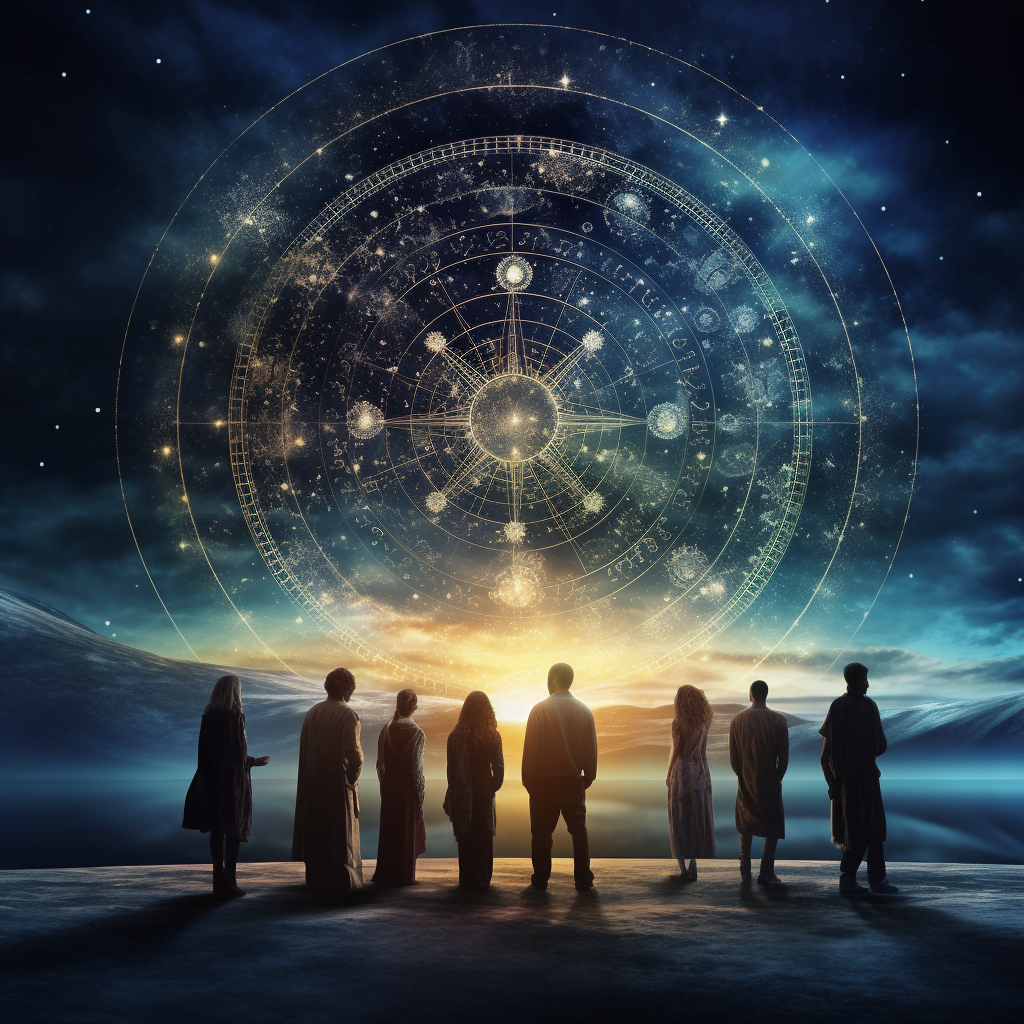In this article, I delve into the captivating origins of astrology, specifically focusing on its connection to ancient Egypt. Astrology, a field that has fascinated countless individuals for centuries, is believed to have its roots in the practices of the Egyptians. Through an examination of historical texts, archaeological evidence, and cultural beliefs, I aim to unravel the intriguing Egyptian connection to astrology. By exploring the role of astrology in Egyptian society, deciphering the meaning behind their zodiac signs, and investigating how their celestial observations influenced this mystical art, we can gain a deeper understanding of the origins of astrology and the significant influence it had on ancient civilizations.
Ancient Egyptian Beliefs and Practices
Egyptian Cosmology
Ancient Egyptians held a unique cosmological belief system that heavily influenced their understanding of the universe. They saw the world as a harmonious and interdependent entity, where everything was interconnected. The Egyptians believed in a cyclical concept of time, with events repeating themselves indefinitely. They attributed great significance to the celestial bodies and their movements, as they believed they held the key to understanding the divine order of the universe.
Importance of Astronomy
Astronomy played a crucial role in the lives of ancient Egyptians. They viewed the stars and planets as celestial gods who wielded immense power and influence over human affairs. By observing the movements of these celestial bodies, the Egyptians believed they could gain insights into the higher realms and foresee events on Earth. Astronomy was deeply tied to religious rituals, agriculture, and even the governance of the kingdom.
Significance of Celestial Bodies
The ancient Egyptians assigned great importance to various celestial bodies, viewing them as manifestations of deities and forces that impacted the world. The sun, known as Ra, was seen as the most powerful and supreme among all celestial beings. The moon, associated with Thoth, the god of knowledge, held significance in the realms of wisdom and magic. The five visible planets – Mercury, Venus, Mars, Jupiter, and Saturn – were also revered and associated with specific deities.
Astrology in Ancient Egypt
Influence of the Stars and Planets
Ancient Egyptians firmly believed that the stars and planets had a profound influence on human lives. They believed that each individual was connected to a celestial body at the time of their birth, which influenced their personality, destiny, and even their health. This personal connection was a fundamental aspect of ancient Egyptian astrology, shaping the individual’s life path and providing guidance on how to navigate the challenges and opportunities that lay ahead.
Role of Astrologers
In ancient Egyptian society, astrologers were highly regarded individuals who possessed deep knowledge of the cosmic order and possessed the ability to interpret the will of the gods through celestial observations. These astrologers played a key role in advising the pharaohs, the nobility, and the common people. They would use mathematical calculations, intricate charts, and divine intuition to interpret the influence of celestial bodies on daily life and guide decision-making.
Earliest Astrological Texts
The ancient Egyptians left behind a rich legacy of astrological texts that provide invaluable insights into their beliefs and practices. The most famous of these is the “Clavis Astronomica” or “Key to Astronomy,” believed to be authored by the renowned Egyptian astronomer, Nechepso, under the guidance of the god Thoth. This ancient text laid the groundwork for later astrological manuscripts and shaped the development of astrology not only in Egypt but also in neighboring civilizations.
Astrology’s Cultural Influence
Spread of Egyptian Astrological Knowledge
Egyptian astrology, with its profound understanding of the celestial bodies and their influences, found its way beyond the borders of Egypt. The knowledge and practices were spread through trade, conquest, and cultural exchanges with neighboring civilizations such as the Greeks and the Romans. As patrons of art, literature, and science, the Egyptians left a lasting imprint on the development of astrology in these cultures, shaping their own mythologies and religious practices.
Integration into Other Cultures
Egyptian astrological knowledge was enthusiastically integrated into other ancient cultures, leading to fascinating syncretic expressions. The Greeks, renowned for their intellectual pursuits, eagerly adopted Egyptian astrology and blended it with their own philosophical and theological traditions. This fusion resulted in a new form of Hellenistic astrology, enriching both civilizations and leaving an indelible mark on the history of astrology.
Astrology in Graeco-Roman Egypt
Graeco-Roman Egypt, known for its flourishing intellectual and cultural milieu, witnessed a thriving practice of astrology. Egyptian astrological principles intermingled with Greek philosophical concepts and the Roman pantheon of gods, creating a unique synthesis. Astrology played a central role in the lives of individuals, providing guidance in matters of love, marriage, health, and career. It enjoyed widespread popularity, impacting all facets of society, from the common people to the ruling elite.
Interplay Between Astrology and Religion
Astrology in Egyptian Mythology
Astrology and mythology were deeply intertwined in ancient Egypt. The celestial bodies were personified as gods and goddesses who played vital roles in the mythology of Egypt. For instance, Horus, the god of the sky and divine kingship, was closely associated with the sun, while Isis, the goddess of magic and fertility, was linked to the moon. The mythological narratives served as a framework through which the Egyptians sought to understand celestial phenomena and divine will.
Religious Ceremonies and Astrological Practices
Religious ceremonies in ancient Egypt often included astrological rituals, serving as a means to communicate with the gods and seek their favor. Certain celestial events, such as the annual flooding of the Nile River, were seen as direct manifestations of celestial deities. Egyptians would consult astrologers and priests to determine auspicious times for various religious activities, ensuring alignment with the divine will and maximizing the chances of success.
Divination and Astrology
Divination, the practice of seeking knowledge of the future or hidden information through supernatural means, was an integral part of ancient Egyptian society. Astrology played a significant role in divination, offering insights into various aspects of life, such as love, prosperity, and health. Divinatory practices involved the interpretation of celestial omens, the casting of astrological charts, and the use of symbols and amulets that were believed to harness the powers of the stars and planets.
The Zodiac and its Connection to Ancient Egypt
Origins of the Zodiac
The concept of the zodiac, a celestial coordinate system divided into twelve equal parts, has ancient roots that can be traced back to ancient Egypt. The Egyptians observed that the sun passed through twelve different constellations during its yearly journey across the sky, and these constellations became associated with specific months. This division formed the foundation of the zodiac, a concept that would later evolve and be adopted by other cultures.
Egyptian Zodiac Signs
The ancient Egyptians assigned a unique animal symbol to each of the twelve zodiac signs, with each animal reflecting specific characteristics and qualities associated with individuals born under their influence. For example, those born under the sign of the lion were believed to possess courage and leadership qualities, while those born under the sign of the sphinx were seen as mysterious and enigmatic.
Significance of Animal Symbolism
Animal symbolism in the Egyptian zodiac served as a powerful tool for understanding the complexities of human nature and character. The Egyptians believed that each animal possessed distinct virtues and strengths, which were bestowed upon individuals born under their corresponding zodiac sign. The animal symbolism allowed for a deeper comprehension of one’s personality traits, strengths, and weaknesses, enabling individuals to navigate their lives with greater self-awareness.
Role of Astronomy in Egyptian Astrology
Studying the Skies
The ancient Egyptians were avid astronomers, devoting immense time and effort to studying the night sky. They meticulously observed and recorded the movements of celestial bodies, noting their positions, alignments, and cycles. By understanding the patterns and rhythms of the stars and planets, the Egyptians attempted to unlock the secrets of the universe and gain insight into the cosmic order that governed all aspects of life.
Observation and Recording Techniques
Ancient Egyptian astronomers developed sophisticated techniques for observing and recording celestial events accurately. They used instruments such as the merkhet, a long, narrow tool with a plumb line, to measure the angle of celestial bodies. Additionally, they developed mathematical calculations and complex astronomical charts to track the movements of celestial bodies over time. These meticulous observations and recordings formed the foundation of ancient Egyptian astrology and helped shape its subsequent development.
Astronomical Alignments in Egyptian Architecture
The profound connection between astronomy and ancient Egyptian society is evident in their architectural marvels. The Egyptians incorporated precise astronomical alignments into the design and construction of their temples, pyramids, and other structures. The positioning of windows, doorways, and chambers was meticulously planned to align with specific celestial events or the rising and setting of particular stars. These alignments were believed to facilitate spiritual connections and harness the cosmic energies within these sacred spaces.
Influence of Egyptian Astrology on Western Astrology
Transmission of Knowledge
The knowledge of Egyptian astrology spread beyond their borders, finding its way into various civilizations through trade, conquest, and cultural exchanges. The thriving Hellenistic empire, in particular, played a crucial role in transmitting Egyptian astrological knowledge to the rest of the ancient world. Greek scholars, including the likes of Ptolemy, further developed and expanded upon Egyptian astrology, incorporating it into their own systems and ultimately passing it on to future generations.
Arabian and Medieval Renaissance Influences
During the medieval period, Arabian scholars made significant contributions to the field of astrology by incorporating Egyptian astrological principles into their own works. These scholars translated and preserved ancient Egyptian astrological texts, ensuring their survival and propagation. Arabic astrologers, such as Albumasar, expanded upon the foundational knowledge inherited from Egypt, providing new insights and perspectives on celestial influences.
Revival and Modern Adaptations
The Renaissance period witnessed a revival of interest in ancient knowledge, including astrology. Scholars and philosophers such as Marsilio Ficino embraced Egyptian astrological concepts, integrating them into their own interpretations and systems. As astrology evolved, it continued to be shaped by cultural, scientific, and philosophical shifts, resulting in modern adaptations that draw upon the enduring legacy of ancient Egyptian astrology.
Critiques and Skepticism
Scientific and Cultural Criticisms
Throughout history, astrology has faced various critiques and skepticism from both scientific and cultural perspectives. Scientific critics argue that astrology lacks empirical evidence and fails to meet rigorous scientific standards of verification and falsifiability. Cultural critiques argue that astrology perpetuates superstition and diverts attention from more tangible and evidence-based pursuits. These criticisms have prompted ongoing debates and discussions about the validity and value of astrology in contemporary society.
Misinterpretations and Pseudoscience
Misinterpretations and misappropriations of ancient Egyptian astrological practices have contributed to the growth of pseudoscience and questionable astrological practices in modern times. Some individuals and groups have commercialized astrology, making unsubstantiated claims and offering dubious services. These practices, often divorced from the rich cultural and historical contexts of ancient Egyptian astrology, can mislead and exploit those seeking guidance and insight.
Exploring Alternative Explanations
Critiques of astrology have also spurred alternative explanations for the seemingly accurate predictions and insights derived from astrological readings. Some argue that psychological factors, including confirmation bias and the Barnum effect, play a significant role in the perceived accuracy of astrological interpretations. Others suggest that shared cultural and societal experiences may account for the seemingly accurate predictions attributed to astrology. These alternative explanations invite further exploration and analysis to gain a deeper understanding of the mechanisms at work.
Archaeological Evidence and Artifacts
Astrological Tools and Instruments
Archaeological discoveries have unearthed various tools and instruments used by ancient Egyptian astrologers in their practice. These include merkhets, sighting tubes, and sundials, all of which helped astronomers observe and record celestial events accurately. These artifacts provide tangible evidence of the meticulous astronomical practices that formed the foundation of ancient Egyptian astrology.
Depictions in Ancient Art
Ancient Egyptian art offers valuable insights into their astrological beliefs and practices. Wall paintings, reliefs, and sculptures depict celestial bodies, zodiac signs, and astrological symbols. These artistic depictions serve as visual representations of the profound cultural and religious significance that astrology held in ancient Egyptian society. They reveal the Egyptians’ deep reverence for the stars and their pursuit of cosmic understanding.
Astrological Documents and Papyri
The discovery of various astrological documents and papyri has shed further light on the astrological practices of ancient Egypt. Notable among these is the “Astrology Book of Ptolemy,” which provides detailed instructions on casting astrological charts and interpreting celestial influences. These documents offer valuable glimpses into the complexities and intricacies of ancient Egyptian astrology, helping to deepen our understanding of this ancient practice.
Conclusion: An Enduring Legacy
Legacy of Egyptian Astrology
The ancient Egyptians’ beliefs and practices in astrology have left an enduring legacy that continues to shape our understanding of the cosmos and its relationship to human existence. Their meticulous observations, mathematical calculations, and deep reverence for the celestial bodies have influenced subsequent civilizations, providing the foundation for the development of astrology as we know it today.
Continued Relevance in Modern Society
While skepticism and critiques persist, astrology maintains its popularity and relevance in modern society. Many individuals find solace, guidance, and self-reflection through astrological interpretations. Whether used purely for personal introspection or as a guiding tool in decision-making, astrology continues to captivate the human imagination, offering a glimpse into the vast interconnectedness of the universe.
Ongoing Research and Discoveries
Research into ancient Egyptian astrology remains a vibrant field, driven by archaeologists, historians, and scholars eager to unravel its mysteries and shed light on its intricacies. Ongoing excavations, translations of ancient texts, and interdisciplinary studies continue to unearth new insights and deepen our understanding of this ancient practice. The journey to comprehend the countless secrets of ancient Egyptian astrology is an ever-evolving one, ensuring that its legacy endures for generations to come.


